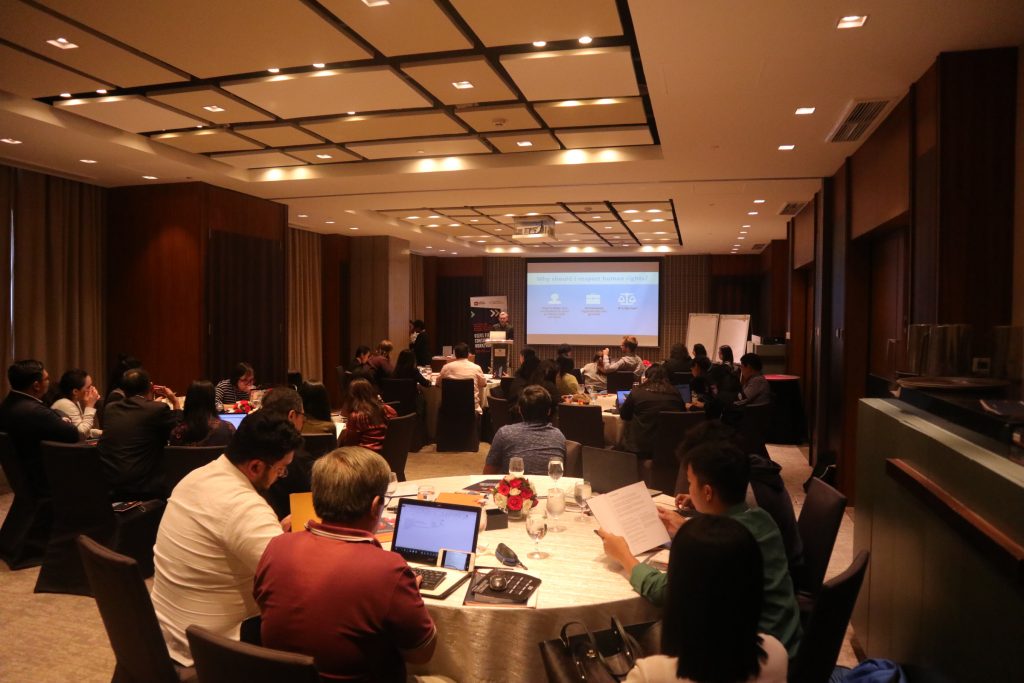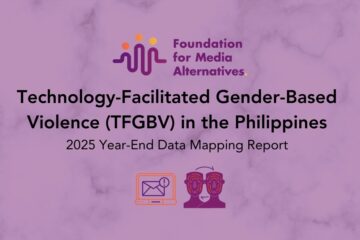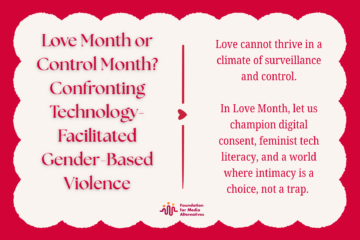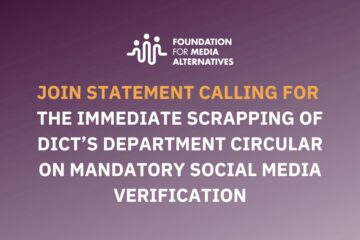More than ever, we need to talk about business and human rights
When one mentions business and human rights, corporate social responsibility immediately comes to mind. But the times call for businesses to do more than plant trees, hold fundraisers, or send scholars to school – today, they are called to be at the forefront of respecting human dignity and fundamental rights.
In the issue of climate change, businesses are called to lessen emissions and reduce waste, if not be accountable for the pollution they cause. In the name of rural development, they are called to respect farmers’ and ancestral rights. For their employees and workers, businesses must ensure fair labor practices. And the list goes on.
The Foundation for Media Alternatives, with Global Partners Digital, is exploring a specific aspect of business and human rights (BHR) in the Philippines: How may businesses respect privacy rights and free expression? When data is in the hands of the employer, how do they ensure security and privacy? How do they balance free speech rights with business interests?

Tech SMEs and CSOs gathered to discuss business and human rights in the Philippines.
In a Users First Consultation Workshop on July 25, 2019, small-and-medium sized enterprises (SMEs) in the tech sector, civil society organizations, as well as government stakeholders gathered to check how the Philippines respects business and human rights. What we found is a need for more consultations regarding BHR and why the country needs to implement its principles. Many businesses still remain in the dark about the advantages of respecting privacy and free expression and the risks if they don’t.
Why do businesses need to respect privacy and free expression rights? Richard Wingfield of Global Partners Digital enumerates three reasons:
- Your users will have more trust and confidence in your products and services. Data from the US (Deloitte, 2015) shows that consumers will be less likely to buy from a company if it suffers a data breach. Yet while only 25% believe companies handle data responsibly, 72% say businesses, and not government, are best equipped to protect them (PricewaterhouseCoopers, 2018).
- You’ll get more opportunities for investment and growth. Aside from user trust and confidence, as well as legal compliance, investors are now looking at ethical practices when considering where to grow their money. In fact, in the last five years, the value of socially responsible funds has risen 76% to over $200 billion.
- It’s the law! The Constitution, as well as laws such as the Data Privacy Act, mandates businesses to respect free expression and data privacy rights.
Among others, businesses may look into the UN Guiding Principles on Business and Human Rights, which sets out three pillars for implementation: 1) the responsibility of governments to protect human rights via regulations and policy, 2) the responsibility of businesses to respect human rights in practice, and 3) the responsibility both of governments and businesses to provide a right to remedy in case of violations of human rights by businesses.

Participants list down urgent issues in the business sector involving privacy and free expression.
Businesses may also look into the following:
- The Global Network Initiative (GNI) Principles on Freedom of Expression and Privacy
- The Data Privacy Act of 2012 (DPA)
For further reading, check out the presentations made during FMA’s and GPD’s Users First Consultation Workshop:
- Guiding Principles on Businesses and Human Rights, by Atty. Jesus G. Torres of the Commission on Human Rights
- Civil Society and Tech SMEs by Global Partners Digital
- Privacy and Free Expression, by Atty. Jam Jacob of Foundation of Media Alternatives
- Data Privacy Act and Freedom of Expression, Role of the NPC, by Numeriano Hernandez Jr., National Privacy Commission
For inquiries, please email info@fma.ph



0 Comments